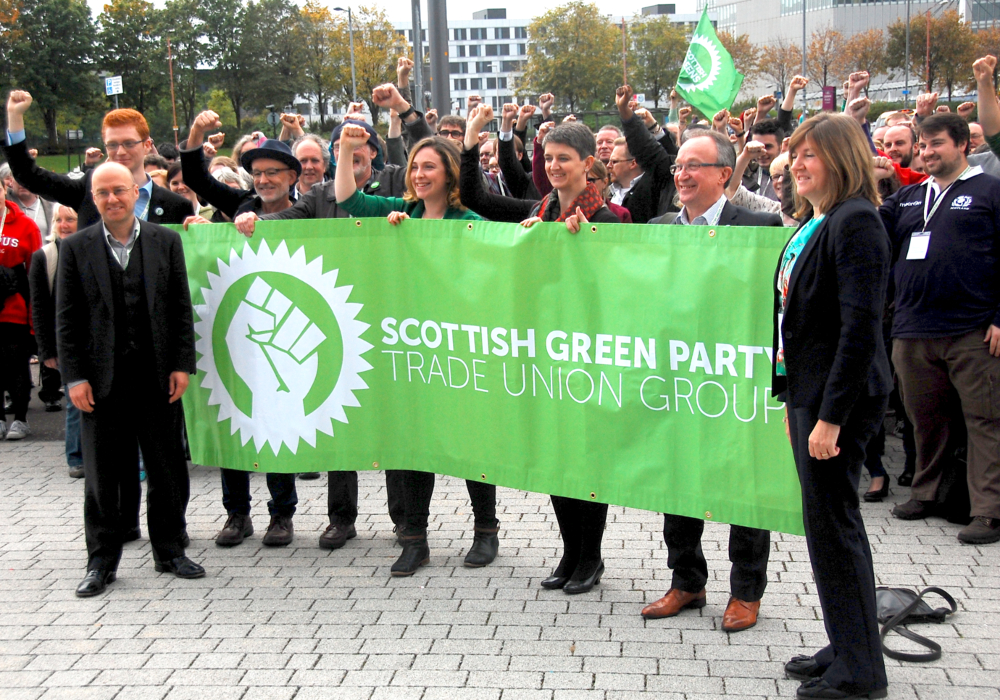The Scottish Greens’ 60p rate and taking inequality seriously

The Scottish Greens have launched their tax proposals today, radically reforming both income tax and local government taxation.
The proposals are detailed, and worth looking at in detail – something I’ll try to come back to. But the thing generating the most headlines is the introduction of a 60p top rate of income tax: ie, 60p on incomes over £150,000.
Some have dismissed this as ‘gesture politics’. They say that the risk of people leaving the country or re-allocating their tax to their London flat rather than their Edinburgh home (say) means that it will raise nothing. As such, this is just an attempt to make a ‘statement’, and not a serious proposal.
I think this misses the point entirely. Greens have been clear that they are working on the assumption that this tax is revenue neutral.
For purposes of budgeting, @scotgp is assuming no additional revenue at outset from raising additional rate of income tax to 60%,
— Andy Wightman (@andywightman) March 29, 2016
And in general, it’s true that upper tax bands don’t bring in massive amounts of extra cash – there just aren’t enough people in them. The extra income coming from Green plans is a result of marginally higher taxes on the much more significant upper-middle class.
No, the 60p rate is about something else – something which is no less important.
In their seminal book ‘The Spirit Level’, epidemiologists Richard Wilkinson and Kate Pickett showed the astonishing correlation between a whole range of social problems, and levels of income inequality in different countries.
On the whole, their research shows, more equal countries are healthier, better educated, have lower rates of drug use, higher levels of trust, lower homicide rates, lower imprisonment rates and… I could go on. To put it simply, income inequality rips societies apart. It makes everyone – from the top of the scale to the bottom – more stressed about slipping down a couple of rungs, and that stress damages us all.
These things are, of course, all important in and of themselves. But they also have a huge financial impact. The cost of our inequality is increased need for the NHS, which comes with a hefty bill. The cost of being intensely relaxed about the filthy rich is that we have to spend more on schools to achieve the same level of education as other countries.
In the Green tax proposals, they produced two bottom lines: the impact on revenue and the impact on the gini coafficient; the standard measure of financial inequality.
.@scotgp tax plans aim to reduce inequality & raise revenue. The ‘Spirit Level’ evidence is the former matters lots: pic.twitter.com/eyJWl0veub
— Adam Ramsay (@AdamRamsay) March 29, 2016
Of course, increasing the top rate of tax to 60p doesn’t solve the problem of inequality in Scotland. To do that would require a whole different economic strategy, built on a much broader base: something which Greens have also talked lots about.
But increasing the top rate of tax would help bring down inequality a bit. And that would make Scotland a better place to live in itself. And ultimately, it is also likely that it would save money on mopping up the mess left from a Thatcherite economic strategy which has ripped our society apart for the last thirty years.



Excellent point Adam which needs more publicity: Taxation need not just be about raising revenue, it is also a tool for molding a less unequal society.
I have one quibble though: Whilst the Gini coefficient IS a standard summary statistic for describing inequality we must recognise that it is just a summary statistic. If we only tackle inequality right at the top-end then we may improve our Gini coefficient but not get the improvements in society that we seek and which require reduced inequality over the whole spectrum.
Greens need to be absolutely clear where higher rates start to kick in. Statement today said 43% tax on incomes over£43000. I believe the reality is 43% on 43k above the tax free limit. Not certain I’m correct, but if so it would be better to say 43% on incomes above £55k or whatever.
Looks, looks like I’m wrong after rereading. Sorry.
Looks, looks like I’m wrong after rereading. Sorry.